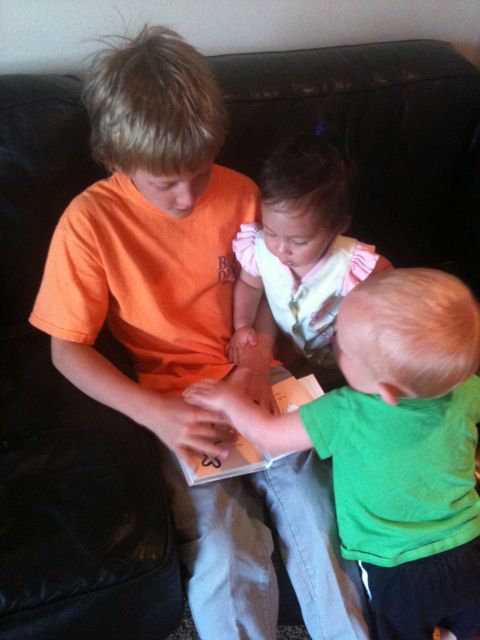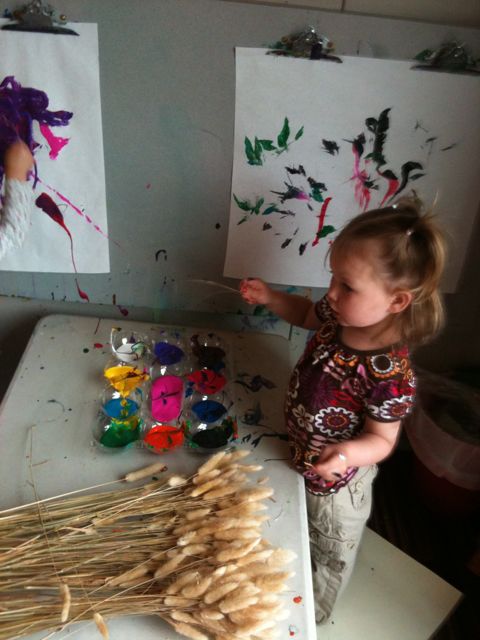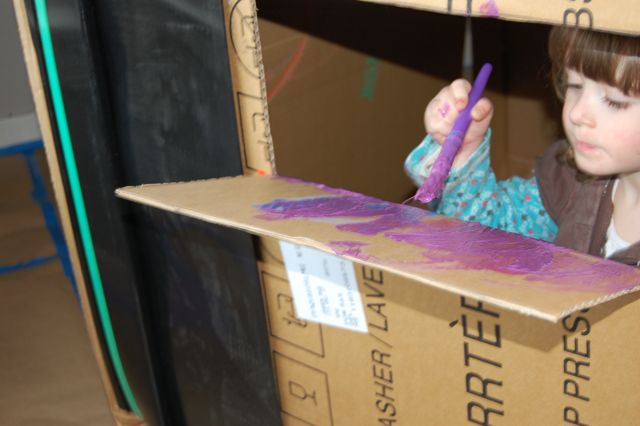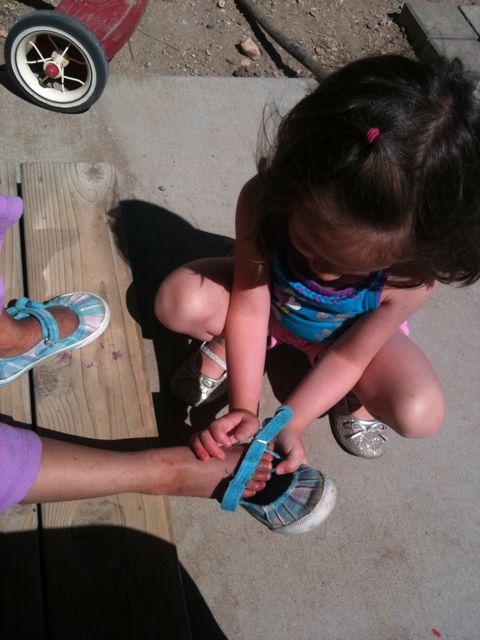Weeks ago, I began writing a post on our adult interactions with the children in our lives and in our program. If you scroll down through the blog, you'll not find it! As I wrote, I found that the topic included vastly too many categories to be contained in a single blog post. So, I dropped it...until further and more specifically focused inspiration would arise. In time, you will find a series of posts focused on the greater concept of the way we communicate with preschoolers.

Well, today I happened (by blog-hopping) upon a blog post today that is related to one aspect of our untraditional approach at communication with children.

Often our adult agenda of how to properly interpret a child's experience can get in the way of a genuine learning opportunity for that child. We hold in our heads ideas of what can/should be gained from a child's experience with the world and subsequently interject those ideas inappropriately. In doing so, we interrupt the natural learning process, all in the name of a "teachable moment."
I've got an example for you:
I have desired to introduce hot glue guns for a long time, but have been leary because of the fact that our program is school for not only preschoolers, but toddlers and even infants as well. I did not want to pull the hot glue guns out just for the older children, and make them off-limits to the little ones. I also (obviously) can not trust the little ones to understand the concept of a "tool", as to them EVERYTHING is an experimental piece to the THOROUGHLY explored (NOT SAFE!).
Well, a couple of weeks ago, I went out on a limb and bought several hot glue guns (painfully low-temp ones) for the school. I gave in to my desire to support the children's creativity in providing them an outlet for it that would provide superior functionality over "school glue". So glad I did. They have enjoyed experiencing and creating with the glue guns.
I pulled the hot glue guns out first when only a couple of four-year-old children were finished with nap time. We did use the hot glue guns later with all who desired attempting them (with the help of a wonderful, very patient parent volunteer)...but I'd like to focus in on the experience of those first two children with the hot glue guns.
Before they started gluing, I explained to the children that these glue guns are not toys. They are tools, and must be used consciously. I pointed out that the tip was hot and could burn them. Then I let them get started. They began selecting a random assortment of bits and pieces (beads, pipe cleaners, craft sticks, buttons, etc.) to apply to their base (cardboard).
Their method of application went something like this:
-squeeze trigger to apply small dot of glue
-hunt for the perfect piece to place on the glue dot
-attempt to adhere the piece
-find that the piece would not stick
Now, in that moment I had the thought (created in my mind by the "spell" my mind battles frequently) that this was a "teachable moment". I could explain to the two children exactly what was going on and how to ensure that the pieces would indeed stick. Then they would "learn." Right? Well, I didn't fall for it. Here was the conversation that ensued instead.
S-It's not sticking!
Me-Oh. Why not?
O-(after an additional attempt to stick a piece on a glue dot)- it's hard!
Me- Oh?
S & O tried again.
S- It's still not sticking. It's too hard!
Me- How did it get hard?
S- (after poking a bead at the hardened glue repeatedly- cautiously touching the glue dot for as brief a moment as possible- then again a little longer- and again without caution using full finger pad)- It got too cold.
Me- Oh. So what can we do?
O- We have to put it on fast.
Now, they both got a piece at the ready for being glued, placed a fresh dot of glue, and quickly stuck their piece in place.
Do you see folks? I did not "teach" them. They have the tools they need within their minds to figure out how the world works. We only need supply them with the opportunity to experience. Some little questions when they were looking for guidance was all that these two needed. They simply had to be encouraged to have confidence in questioning within themselves for the answers.

At our last monthly parent meeting, we talked about something that our staff heard at our educational conference last July. The presenters used the example of erosion. Erosion is something that many adults would feel compelled to teach a child who is playing with sand and water as they are mucking around and eroding their sand walls with their bucket or hose of water. That's not what preschoolers need. They don't need to be told, "That's called erosion. Erosion happens when...blah, blah, blah." They just need to develop experiences. Experiences that, when the time comes, will provide real understanding of the concepts they are learning. Some day when they are sitting in a classroom studying erosion, a lightbulb will go on, and they'll think, "oh yeah...erosion...I know what that is. It's just like I used to do in the sand at my preschool."

So, do you remember that blog-post I initially mentioned having read today. Here it is. It was beautifully written by what appears to be an excellent new blog-writer. Please enjoy reading and let her know we appreciate what she wrote!